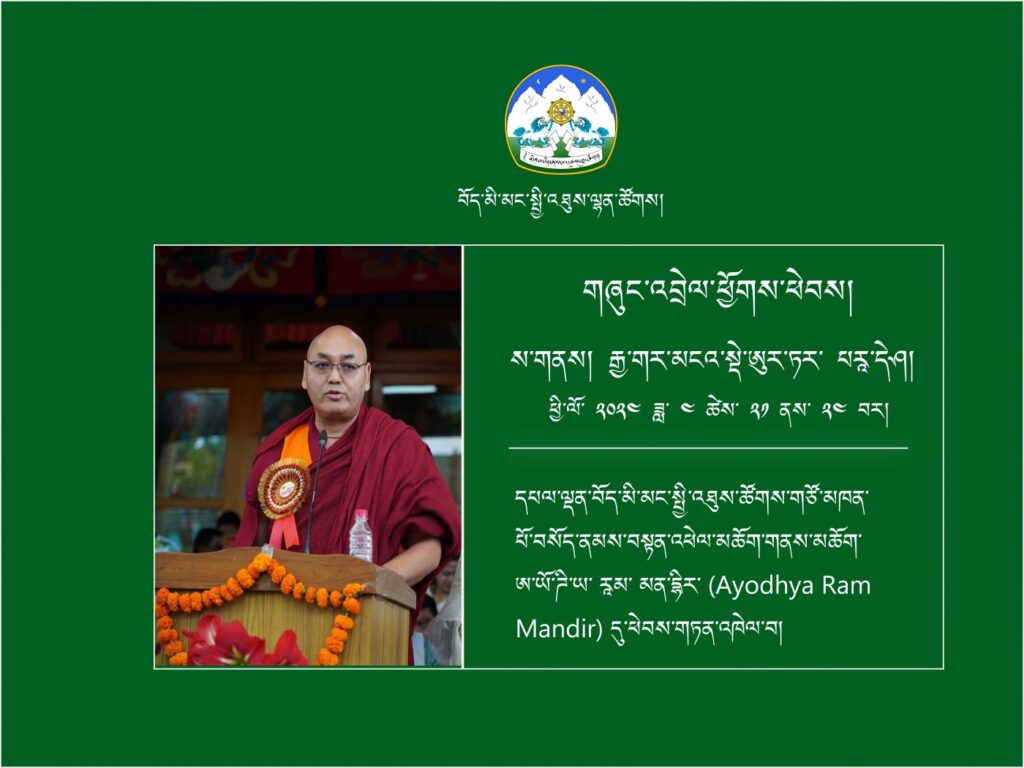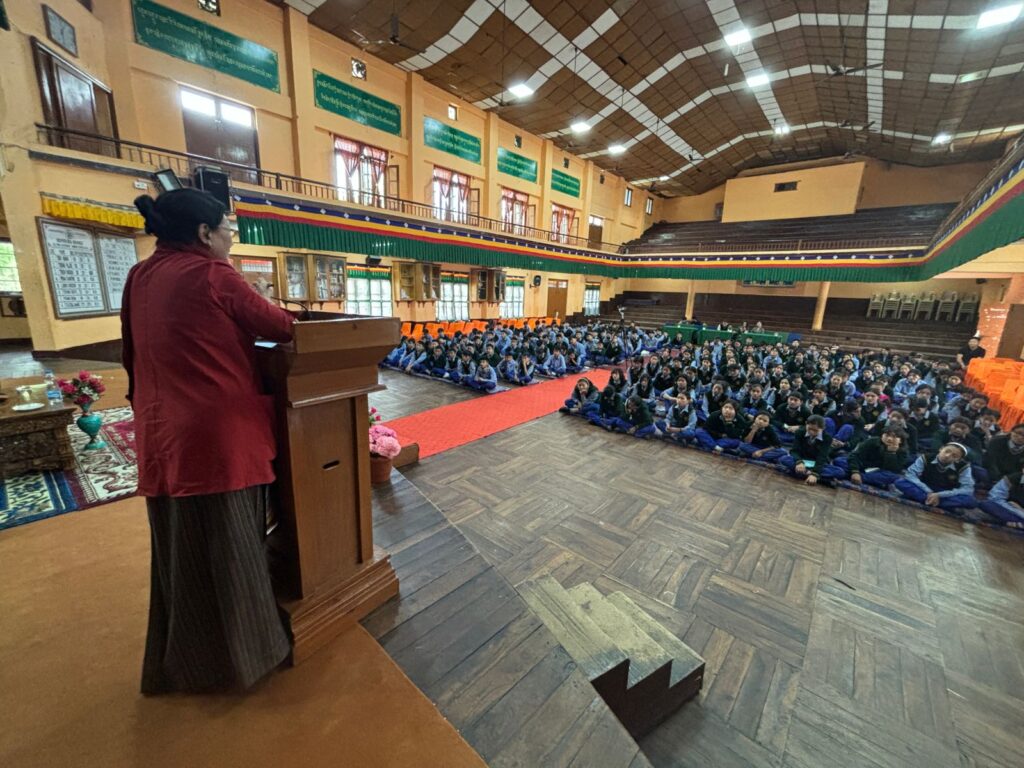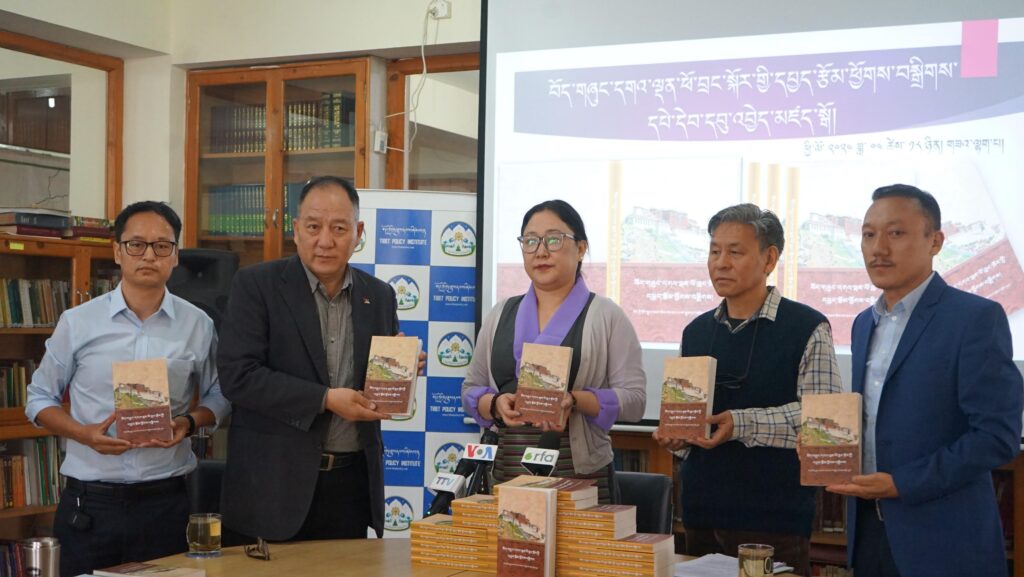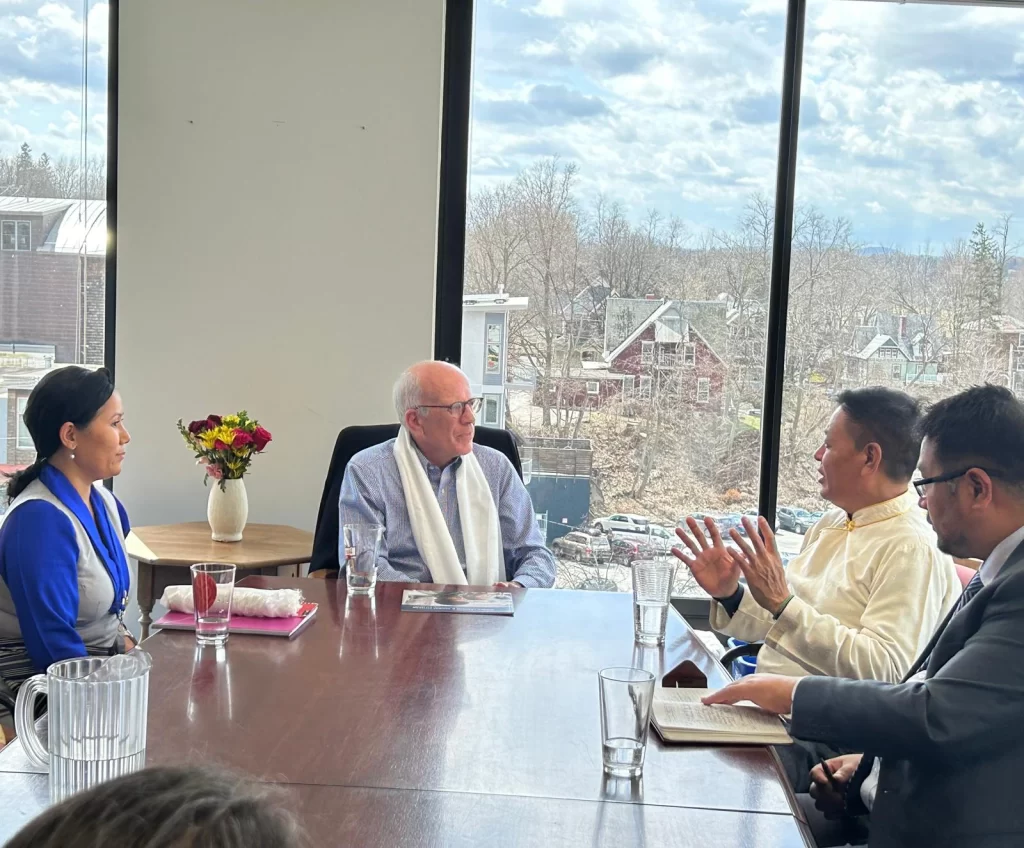Dharamsala-Beijing Contact: A Welcome Development, Germany tells United Nations Forum
Geneva, 29 March, 2003: German Foreign Minister, Mr. Joschka Fischer, in his address to the 59th UN Commission on Human Rights on Tuesday said that the September 2002 contacts between Dharamsala and Beijing was a “welcome development” but termed the current human rights of China, as “not satisfactory”. In the paragraph devoted to China, Mr. Fischer said: “The human rights situation in China is also still not satisfactory. Political prisoners have indeed been released in the immediate past, but dissidents nonetheless continue to be persecuted by the state. Numerous religious and ethnic minorities are still not able to make use of the rights they posses. The successful contacts and visits by representatives of the Dalai Lama to the People’s Republic of China and Beijing’s positive cooperation with some UN human rights mechanisms are welcome development. We hope that China will soon commit itself to ratifying the UN Covenant on Civil and Political Rights by a given date, and we call on Beijing to stop its excessive use of the death penalty.”
This week, as the Commission on Human Rights began its debate on the right
to self-determination, the International Fellowship of Reconciliation
(IFOR), based in Holland, has submitted a written statement on Tibet which
was released as a UN document on Monday. In this statement , IFOR urges the Commission on Human Rights to
review the human rights situation in Tibet and to adopt a resolution which
calls upon the Chinese authorities to open earnest and substantive dialogue
with the Dalai Lama or his representatives to seek a peaceful resolution of
the issues pertaining to the self-determination of the Tibetan people.
While annual reports by thematic special procedures of the Commission were
being made available on the website of the UN High Commissioner for Human
Rights (www.unhchr.ch), the report by the Special Rapporteur on Extrajudicial, summary or arbitrary executions Ms. Asma Jahangir (Pakistan)
dated 13 January 2003, said that she continued to monitor the situation in
China with regard to the situation in Tibet. In December she was concerned
about the sentencing to death of two Tibetans, Tenzin Deleg Rinpoche, also
known as An Zha Xi, and Lobsang Dhondup, also known as Luo Rang Deng Zhu.
These persons were allegedly sentenced to death for causing an explosion.
It is reported that the trial was unfair and mainly based on circumstantial
evidence, and that the two did not have access to a lawyer during the trial.
She wrote to the Government asking for clarification. As the letter was
sent in December, at the time of writing no response had been received. The
Special Rapporteur hopes to report on the case orally in March during the
fifty-ninth session of the Commission on Human Rights.
In an addendum to this report dated 12 February 2003, Ms. Jahangir mentioned
Tibetan cases on which she intervened with the Chinese authorities. The
cases were that of Kelsang Gyatso who was arrested with groups of other
Tibetan monks as they were trying to enter India via Nepal at the Chushui
Bridge. It is reported that Kelsang Gyatso, a Tibetan monk, died in the
Lhasa Detention Centre in December 2001 as a result of beatings and lack of
medical attention. According to the information received, on 5 February
2001, Ngawang Lochoe died in the Lhasa Army Hospital as a result of
continuous ill-treatment and deprivation of medical attention. Ngawang
Lochoe, a Tibetan nun, had been imprisoned since 1993 for having taken part
in a peaceful demonstration. According to the information received, in April
2000, Sonam Richen, a Tibetan farmer, died in Drapchi prison allegedly as a
result of ill-treatment and torture. He had reportedly been in prison since
1992 for shouting pro-independence slogans. According to the information
received, in August 2000, Tsering Wangdrag died in Krazde prison allegedly
as a result of torture and ill-treatment.
Tibet Bureau, Geneva.





